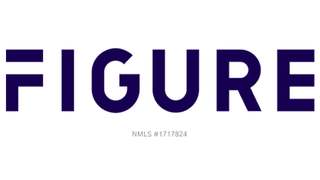Best No-Appraisal Home Equity Loans
Savvy homeowners know they can use the equity they’ve built in their homes to take out loans for large expenditures. A no-appraisal home equity loan can be an ideal solution with the potential to offer you fast access to funds without the hassle of going through an appraisal process.
If, on the other hand, you’re a homeowner looking into home equity loans for the first time, you may have many questions about how much equity you have in your home or even how equity in a home is built up. Understanding the available no-appraisal or hybrid home equity loan offerings is best undertaken with an apples-to-apples comparison such as those below. Keep reading for a look at the options available to you and answers to some of the most commonly asked questions about no-appraisal home equity loans.
Our Top Picks for Best No-Appraisal Home Equity Loans
- Discover: Best for Getting an Appraisal Waiver
- Spring EQ: Best Home Equity Loan for Bad Credit and No Appraisal
- Connexus Credit Union: Best Credit Union No-Appraisal Home Equity Loan
- Navy Federal Credit Union: Best No-Appraisal Home Equity Loan for Veterans
Best No-Appraisal Home Equity Loans Reviews
- No application, appraisal, origination or other fees
- No cash required at closing
- Combined loan-to-value ratio of up to 90%, higher than most competitors
- Loans available from $35,000 to $300,000
- No HELOC option available
- Loans start at $35,000
- May require expense reimbursement up to $500 if the loan is repaid within 36 months
Why we chose it: With low fixed-rate APRs, generous repayment terms and no fees or cash due at closing, Discover home equity loans are a great option for those who want to access the equity in their home without having to pay for the privilege.
With a home equity loan from Discover, you can borrow amounts from $35,000 to $300,000 and enjoy the security of a fixed interest rate, repayment terms of up to 30 years and no application fees, origination fees, appraisal costs or cash due at closing. Fixed-rate APRs are competitive, making tDiscover an affordable choice for home equity needs.
Homeowners looking to get a home equity loan of less than $150,000 are only required to have a credit score of 620 and a score of only 700 for loans of up to $300,000. Its loan-to-value (LTV) ratio of up to 90% is higher than many of its competitors. However, Discover doesn’t offer a five-year repayment term (terms range from 10 to 30 years), and its funds availability is a little slower than some competitors. Eligibility determination takes one to two weeks, with a final decision coming within three weeks. Though there are no closing fees, you'll have to wait up to two weeks for funding after the decision.
Discover’s home equity loan customers review the company highly, citing no fees, low credit score requirements, flexible repayment terms and excellent customer service.
- Funds in as little as 14 days
- Requires minimum credit score of only 640
- Loans available from $25,000 to $500,000
- Terms of five to 30 years
- Not available in Alaska, Hawaii, Idaho, Missouri, New York, North Dakota, South Dakota, West Virginia or Wyoming
- Charges administrative fee
- May charge additional third-party fees
Why we chose it: With relaxed credit score requirements, including a debt-to-income ratio of 50% or better, loan terms of up to 30 years and instant qualification, Spring EQ offers a solid product for those with less-than-perfect credit.
With a Spring EQ home equity loan, you can benefit from a fixed rate even if your credit isn't the greatest. Applicants with a credit score of 640 or higher and a debt-to-income ratio of up to 50% can qualify for a home equity loan. Those with a credit score of 700 or higher can qualify for a loan of up to 95% of their home’s value. The maximum amount you can borrow from Spring EQ is $500,000.
You can opt for a loan term of five to 30 years, making monthly payments manageable. Spring EQ offers instant qualification, can provide you with funding in 21 days on average and as fast as 14 days.
The interest charged on a Spring EQ home equity loan depends on a variety of factors, such as the loan size, your credit score and the home's total value. Loans are not available in all states, and Spring EQ may charge third-party fees on top of its administrative fee. Though Spring EQ has only been around since 2016, it has excellent customer reviews on leading consumer review platforms.
- Lower introductory rate than most competitors
- Up to 15 year repayment term
- Small loans available
- Only available to members
- Not available to homeowners in Alaska, Hawaii, Maryland or Texas
- Charges closing fees
Why we chose it: Low introductory rates and flexible repayment terms make this a solid recommendation for those who wish to work with a credit union instead of a bank.
Connexus Credit Union is a great option for borrowers looking to take out smaller home equity loans at a very attractive introductory APR, making it one of the best home equity loans on the market.
Though its home equity loans are only available to credit union members, the membership process is straightforward and relatively quick. Connexus is positively reviewed by most customers, who cite excellent customer service and flexibility in payment arrangements for borrowers who fall on hard times.
Loans starting at $5,000 are available up to 90% of a home’s total equity, though final loan amounts will be decided by the borrower’s credit score, debt-to-income ratio and the loan-to-value ratio of the borrower’s home. One small but notable drawback is the closing cost charged by Connexus, which can range from $175 to $2,000 depending on the state in which the home equity loan is applied for and the type of loan being applied for. Additionally, loans aren't available to homeowners in Alaska, Hawaii, Maryland or Texas.
- Loans available for the total amount of a home's worth up to $500,000
- No closing costs, application or origination fees
- Fixed-interest loans with flexible repayment terms
- Available only to active duty or retired military and their immediate families
- Requires a Navy Federal Credit Union membership
- Mixed customer reviews
Why we chose it: With no application or origination fees, equity loans up to the total value of a borrower's home and flexible terms, NFCU is a great option for veterans and active-duty military members and their families, Department of Defense personnel and household members of affiliated families who are looking for a no-appraisal home equity loan with a fixed interest rate.
Navy Federal offers fixed-rate equity loans of up to 100% of your home’s equity up to a maximum of $500,000. Repayment terms are adequate, starting at five years and going up to a maximum repayment term of 20 years. This may mean higher monthly payments than with some competitor offerings.
The credit union will pay for closing costs on new fixed-rate home equity loan applications dated on or after June 1, 2023, representing a savings ranging from $300 to $2,000. All borrowers must be active duty military or veterans or their immediate families. Applicants are subject to all of the usual checks and limitations, including those mandated by credit score, the loan amount and the loan-to-value ratio of the property in question.
Interest rates will vary depending on the above factors. The application process may be a little more documentation-heavy than some other offerings, and NFCU membership is required. Consumer reviews of Navy Federal are somewhat mixed, citing unpredictable application processing times and uneven customer service. However, this may be owing to regional branch variations and may not reflect the average experience.
Other no-appraisal home equity loans we considered
We evaluated home equity loan products and lenders based on available interest rates, repayment terms, application process and time required, and consumer reviews, among other criteria.
Though the following lenders offer competitive terms, they failed to meet all the requirements for inclusion in our "best of" rankings.
LendingTree
- "Soft" credit inquiry has no effect on your credit score
- Works with carefully vetted lender partners
- Convenient way for borrowers to compare various home equity loan products
- Not a direct lender
- Rate offers are tentative pending partner lender review
For more than 20 years, LendingTree has helped homeowners find attractive loans by allowing them to compare offers across a wide array of lenders. The procedure is straightforward and quick, and, best of all, it won't affect your credit score. Pre-qualified offers from carefully selected lenders are available within minutes, though final APR, repayment terms and monthly payments may differ.
Why LendingTree didn’t make the top four: Though LendingTree advertises relaxed credit score requirements and debt-to-income ratio limits, initially offered products may not match the final terms offered by their partner lenders, leading to too much ambiguity for a solid recommendation.
[https://www.lendingtree.com/home/home-equity/]
U.S. Bank
- Covers all closing costs
- Offers discounts to banking customers or those who enroll in autopay
- Loan amounts from $15,000 to $750,000
- May charge additional fees, such as a 1% or $500 maximum for repayment within the 30 months
U.S. Bank offers competitive rates, especially to customers or those who opt to become customers, as they become eligible for discounts that can make a home equity loan a bit more affordable. The dollar value of offered loans compares well on both the low and high end, though available information about specifics is a little sparse pre-application.
Why U.S. Bank didn’t make the top four: Ambiguity around key factors such as the possibility of additional fees and no firm timeline for the application process makes U.S. Bank’s offering a little too vague compared to competitor’s offerings.
KeyBank
- Offers home equity loans up to 80% of a home's total value
- Offers an interest rate discount for borrowers who also have a KeyBank checking and savings account
- Only available in Alaska, Colorado, Connecticut, Idaho, Indiana, Massachusetts, Maine, Michigan, New York, Ohio, Oregon, Pennsylvania, Utah, Vermont and Washington
- Does not disclose APR before application approval
KeyBank offers home equity loan products that allow qualified applicants to borrow up to 80% of their home’s total value. It offers both home equity loans and HELOCs. Home equity loans can range from $25,000 to $500,000 with an available 0.25% discount on interest rates to banking customers.
Why KeyBank didn’t make the top four: Though KeyBank offers competitive offerings and flexible terms, home equity loans are only available to homeowners in 15 states.
No-Appraisal Home Equity Loan Guide
What is a no-appraisal home equity loan?
No-appraisal home equity loans can be used by borrowers to access the money they have built up in their home without the need for an appraisal. Unlike traditional home equity products, these do not require a third-party professional appraiser to assess the home’s value.
Instead, the loan is typically approved based on the applicant’s credit history and overall financial health. The benefit of this type of loan is the speed with which it can be processed, as lengthy appraisals can slow down approval timelines. However, the speed of this loan comes at a cost, as the interest rate is typically higher than with traditional loans.
Tips on how to get a home equity loan without an appraisal
Getting approved for a no-appraisal home equity loan depends on the lender and their lending requirements. Generally, the lower the mortgage balance (and the higher the equity), the more likely you can get through the process without an appraisal. Here are some tips to help you get a home equity loan without an appraisal.
1. Look for lenders that consider automated valuation models (AVMs) or desktop appraisals
Research home equity lenders who may consider automated valuation models (AVMs) or desktop appraisals rather than a full appraisal, as this reduces the cost of borrowing and the time to close the loan. AVMs calculate an estimated value of a property based on public data such as property tax and deed records. Desktop appraisals incorporate the AVM with additional data supplied by an appraiser to generate a detailed report of the property’s value.
2. Ensure that you meet the lender's qualification requirements for loan approval
To have a better chance of getting your loan approved, check the lender’s qualification requirements before applying. These criteria commonly include things such as:
- Your credit score and payment history
- Your debt-to-income ratio
- The loan-to-value ratio of the property
- The amount of the loan
- The total value of the property
If you don't meet the lender’s criteria, it's unlikely that your application will be approved. Still, you may identify some things you can correct, such as a low credit score that can be improved by lowering your credit card utilization or improving your debt-to-income ratio.
3. Provide full documentation of income, credit history and property details
Without a full accounting of your income, credit history and property details, it's unlikely your loan will be approved. Lenders need comprehensive and accurate documentation to verify your creditworthiness and your home's current market value. It's essential to provide all the required information as accurately as possible to ensure your application has the best chance of approval.
4. Apply with credit unions or online lenders instead of traditional banks
You may want to consider applying with credit unions or online lenders instead of traditional banks. Credit unions can be a desirable choice because they tend to have more flexible requirements, lower fees, lower interest rates and may offer more attractive loan terms. Online lenders usually have faster prep and approval times, may waive application fees and, in some cases, don't require appraisals.
Alternatives to no-appraisal home equity loans
No-appraisal home equity loans offer a convenient way to access the capital in your home without undertaking an appraisal, but not everyone will qualify or find the terms of available loans attractive. Fortunately, there are some good alternatives.
Home equity lines of credit (HELOCs)
One potential alternative is a home equity line of credit (HELOC). A home equity line of credit is a revolving line of credit that uses the equity in your home as collateral. With a HELOC, you can borrow money up to the pre-determined line of the credit limit as needed, making it a sound way to access funds for home improvements, vacations or other large purchases.
Cash-out refinances
Another alternative is a cash-out refinance. A cash-out refinance involves replacing the existing mortgage and mortgage lender for a loan with a higher amount and then pocketing the difference between the two loans. This option could be the best if interest rates are lower than when you first purchased your home, allowing you to benefit from lower interest payments while taking advantage of the increased equity in your home.
Personal loans
Personal loans are another option. While personal loans typically have higher interest rates than home equity loans, they may be the best option if you need funds quickly and don’t want to wait for the process of a cash-out refinance. Additionally, personal loans don’t require collateral, simplifying the process even further. Note that most personal loans will require a minimum credit score of 580 or higher.
No-Appraisal Home Equity Loan FAQs
Does a home equity loan require an appraisal?
However, some lenders may use different evaluation methods, such as recent home sales in the local area or assessed property value of the subject property. In some instances, the lender may opt for a drive-by appraisal for a home equity loan or not require an appraisal at all.
How long does it take to get a home equity loan after appraisal?
Once the lender approves the application, the borrower will usually be asked to complete and sign the loan documents, after which the lender will disburse the loan and the borrower will receive the funds. Though this timeline is approximate, you can expect the process to take between 15 and 45 days.
Who pays for the appraisal on a home equity loan?
How do banks appraise houses for home equity loans?
The appraiser will also compare the home's value to comparable properties in the area to ensure the loan amount is fair and accurate. The lender will use the appraisal results to set the loan-to-value ratio and set the lending parameters accordingly.
How We Chose the Best No-Appraisal Home Equity Loans
Our methodology for determining the best no-appraisal home equity loans involved carefully comparing the features and benefits of currently available offerings, including:
- Appraisal requirements
- Interest rates
- Application process and processing times
- Availability of fixed or variable interest rates
- Available terms
- Customer and private organization reviews on a variety of platforms
- Customer satisfaction ratings
We also spoke with customer service representatives when possible. It’s important to note that though this information is current at the time of publication, financial institutions may change or update their policies and offerings. Interest rates, terms and the availability of no-appraisal home equity loans may change, and we recommend you verify all information presented here prior to applying for loans with any of these lenders.
Summary of Money’s Best No-Appraisal Home Equity Loans
- Discover: Best for Getting an Appraisal Waiver
- Spring EQ: Best Home Equity Loan for Bad Credit and No Appraisal
- Connexus Credit Union: Best Credit Union No-Appraisal Home Equity Loan
- Navy Federal Credit Union: Best No-Appraisal Home Equity Loan for Veterans









